- BlackVoter.Org
- Posts
- BLACKVOTER.ORG #140
BLACKVOTER.ORG #140

As the 2024 elections approach, Dr. Frances "Toni" Draper emphasizes the critical need for young voices to engage in the voting process.
With Vice President Kamala Harris potentially making history, it's essential not just to discuss the importance of voting but to take action. Young people, especially first-time voters, express excitement and anxiety about participating in this pivotal election.
They are urged to create a comprehensive voting plan, ensuring they are registered and prepared to cast their ballots. With Black voters playing a vital role in key swing states like Georgia, the call to action is clear: let's mobilize, support candidates aligned with our values, and ultimately “be about” voting—taking concrete steps to make our voices heard on November 5.
The article inspires a sense of responsibility and optimism, highlighting the significance of each vote in shaping the future of democracy.

In a compelling call to action, Tom Barbour emphasizes the critical need for equal access to voting as a cornerstone of democracy. As a veteran and public safety reform advocate, he highlights the alarming trend of voting rights restrictions that threaten the electoral process.
With Election Day 2024 looming, Barbour urges support for key legislation, including the Freedom to Vote Act (FTVA) and the John Lewis Voting Rights Act Amendment (JLVRAA), which aim to dismantle barriers for marginalized groups and restore voting rights to those with felony convictions. He notes that over 1.
8 million African Americans are disenfranchised due to past convictions and argues that defending democracy is an American issue that transcends individual interests. As he reflects on the future for his daughters, Barbour stresses that the right to vote is essential for ensuring every voice is heard and democracy remains intact.

As the November election approaches, Milwaukee's longtime Black and Brown voters are sharing their powerful motivations for casting their ballots. With a history of high turnout rates, these seasoned voters, including 76-year-old Leonor Rosas and 71-year-old Rickey Townsell, emphasize the importance of protecting hard-won freedoms and advocating for their communities.
From the legacy of overcoming discrimination to concerns about reproductive rights and economic stability, each voice resonates with urgency. "Voting is a sacred duty," says 84-year-old Rose Scott, recalling her own struggles for suffrage.
Many express a desire for accountability from elected officials, stressing that it’s vital to elect leaders who truly listen to their constituents. Ahead of a pivotal election, these engaged citizens are determined to influence not just the future of their community, but the health of democracy itself—reminding us all that every vote counts.
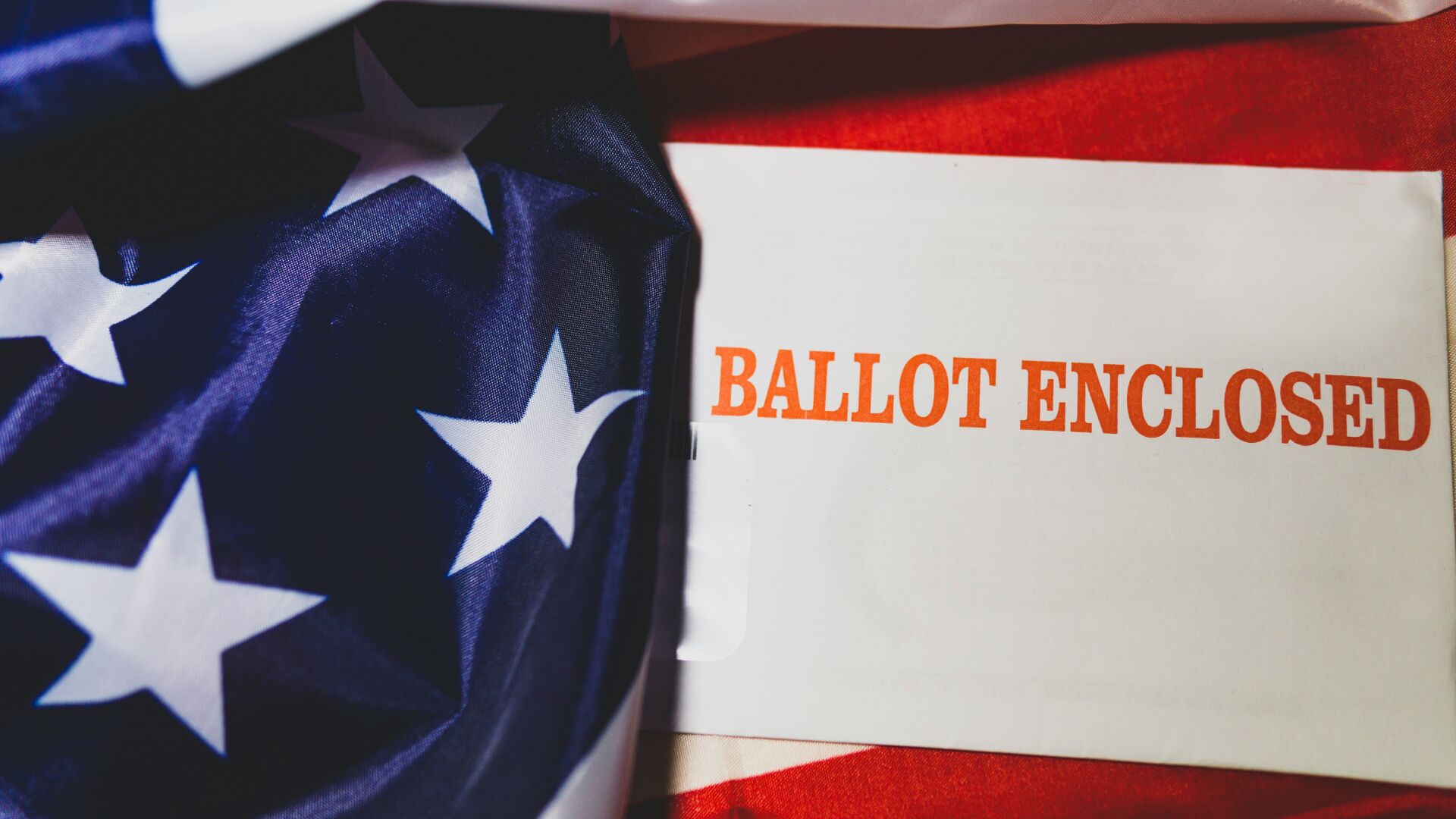
As Louisiana gears up for the November election, absentee voters face a wave of new regulations aimed at streamlining the voting process and ensuring ballot integrity. Key changes include prohibitions on individuals submitting more than one marked absentee ballot unless they're immediate family of the voter and restrictions on who can assist with ballot certification.
A notable law mandates that each witness to a ballot must be at least 18 and can only certify one non-family member's ballot. Another significant update allows election boards to challenge ballots lacking required information, like signatures.
Voter registrars will actively contact those with incomplete absentee ballots to rectify issues before the crucial Nov. 4 deadline.

As the 2024 election nears, women of color are emerging as a formidable voting block that could shape the outcome. With Black women becoming the second-largest group of voters in the U.
S., and significant participation from Latina and Asian American communities, their influence is set to redefine political landscapes, especially in battleground states like Arizona and Texas.
Issues like reproductive justice, immigration reform, and healthcare are at the forefront of their activism, challenging historical barriers such as voter suppression. Experts emphasize that this engagement is driven by a shared understanding of systemic challenges, fostering coalitions among diverse communities.
Notably, politicians like Vice President Kamala Harris and former President Donald Trump are competing for their support, recognizing their potential to swing the election. Regardless of the election's outcome, the mobilization and passion of women of color signal a pivotal shift in American politics.
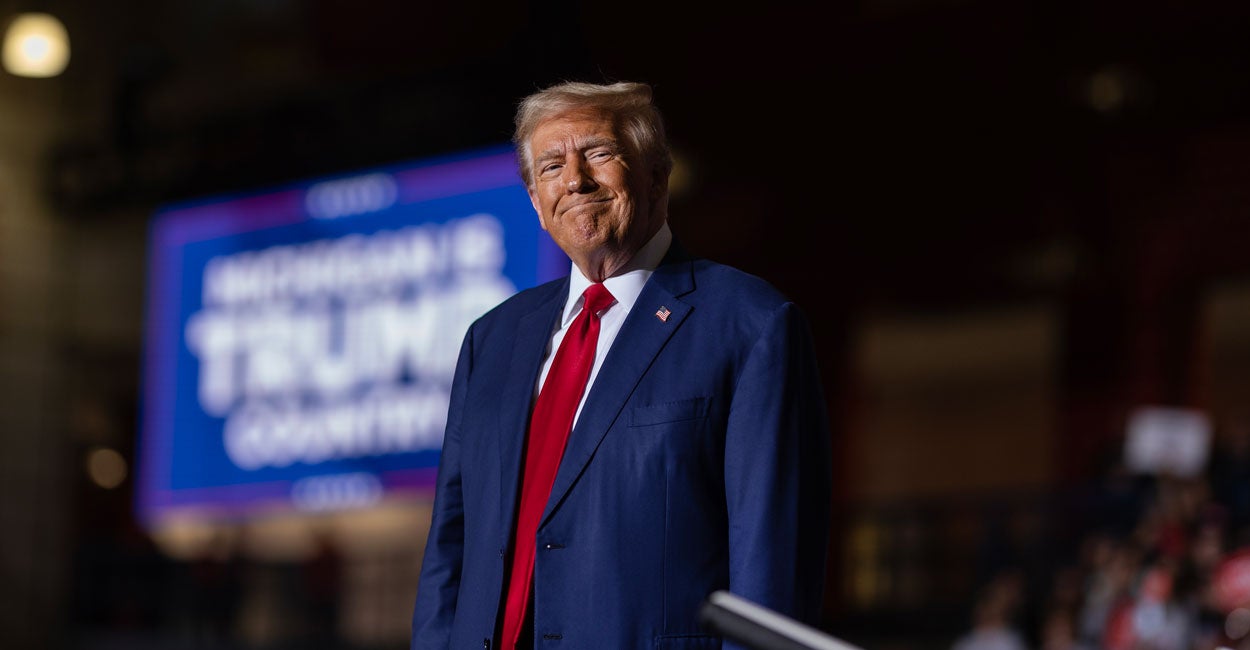
As the race for Michigan's presidential vote heats up, a recent poll reveals a tight contest between former President Donald Trump and Vice President Kamala Harris, with Trump leading by just 1% (49%-48%). While most voters are focused on this two-way scenario, experts assert that the final vote will also include a mix of minor candidates, creating a complex electoral landscape.
Interestingly, Democratic voters overwhelmingly believe Harris has the edge for a win, while Republican voters back Trump. Amidst shifting perceptions of personal economic well-being since 2020, white and other ethnic voters are more likely to feel worse off now, while African American voters largely report improvements.
The poll also highlights an upcoming Senate contest where Democrat Elissa Slotkin holds a narrow lead over Republican Mike Rogers. With Election Day on November 5 approaching, both candidates will need to harness voter sentiment effectively.
In a passionate call to action, Dr. Reverend J.
Lawrence Turner urges Black Memphians to register and vote, emphasizing the importance of local elections in shaping everyday lives. With Tennessee's dismal voter turnout and ongoing voter suppression, particularly against marginalized communities, he highlights recent efforts to address gun violence through city referendums that were stymied by state officials.
His message is clear: apathy and barriers must not prevent participation in the democratic process. Turner advocates for a strong voting plan, community engagement, and holding accountable those who undermine the right to vote.
He reminds readers that while presidential elections garner much attention, the real impact often lies "down the ballot," where local leaders wield significant power. As the November 5 election approaches, he stresses that voting is not just a right but a critical responsibility, urging everyone to make their voices heard and fight for justice.
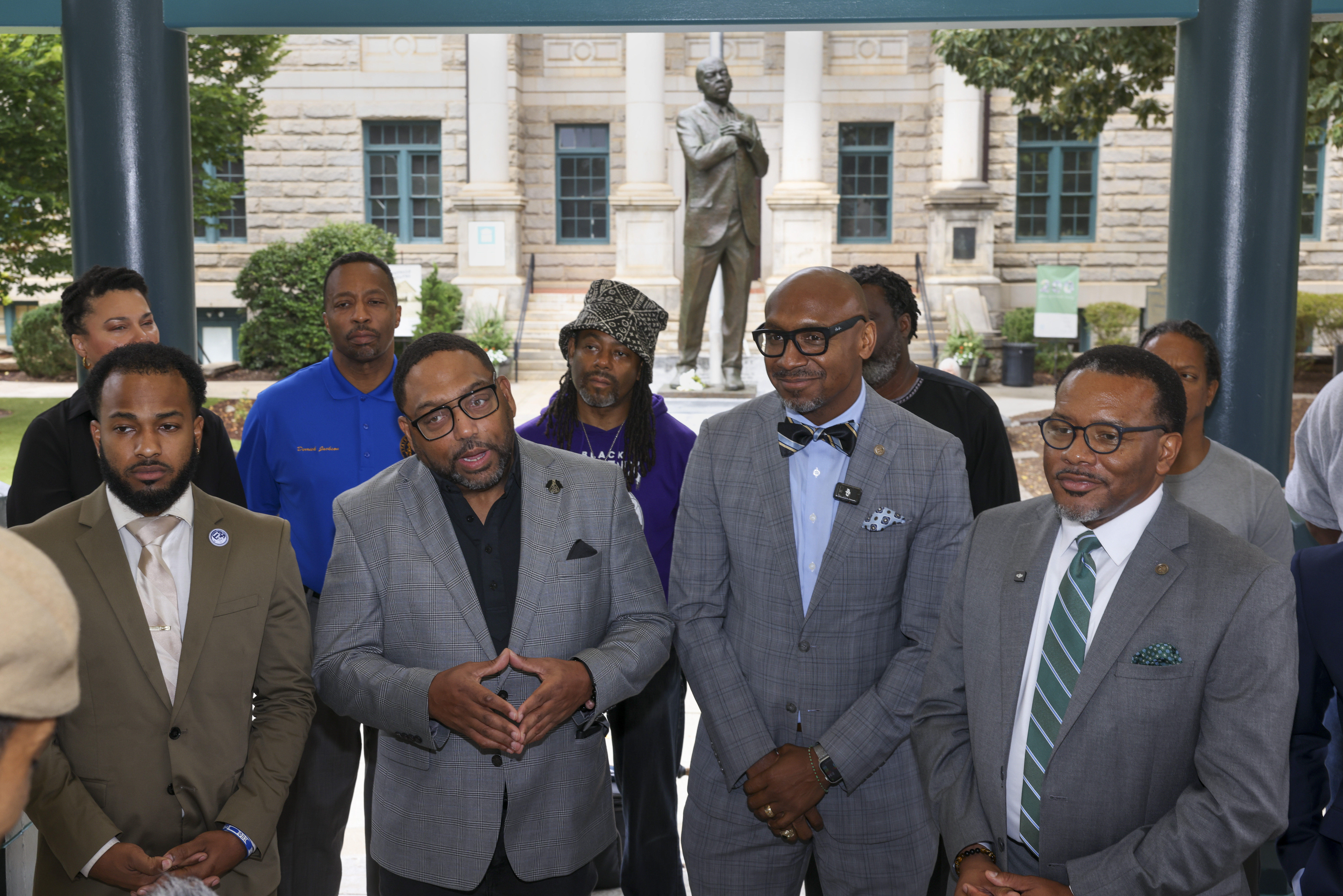
Georgia's recent voting law overhaul, Senate Bill 202, is drawing sharp scrutiny for its disproportionate impact on Black voters. An analysis by the Atlanta Journal-Constitution reveals that the law’s restrictions—such as reduced drop box availability, stricter absentee ballot deadlines, and increased voter ID requirements—have hit Black voters harder than their white counterparts.
For instance, Black absentee ballot applications faced a higher rejection rate due to new early deadlines, while access to drop boxes diminished significantly in areas with large Black populations. Critics, including civil rights advocates, argue these changes are intentional efforts to suppress voter turnout among communities of color.
Legal challenges claiming racial discrimination are underway, though a federal judge has thus far upheld most provisions, insisting evidence of discrimination is minimal. As the 2024 elections loom, awareness of these challenges becomes crucial, emphasizing the ongoing struggle for equitable voting access in Georgia.
/
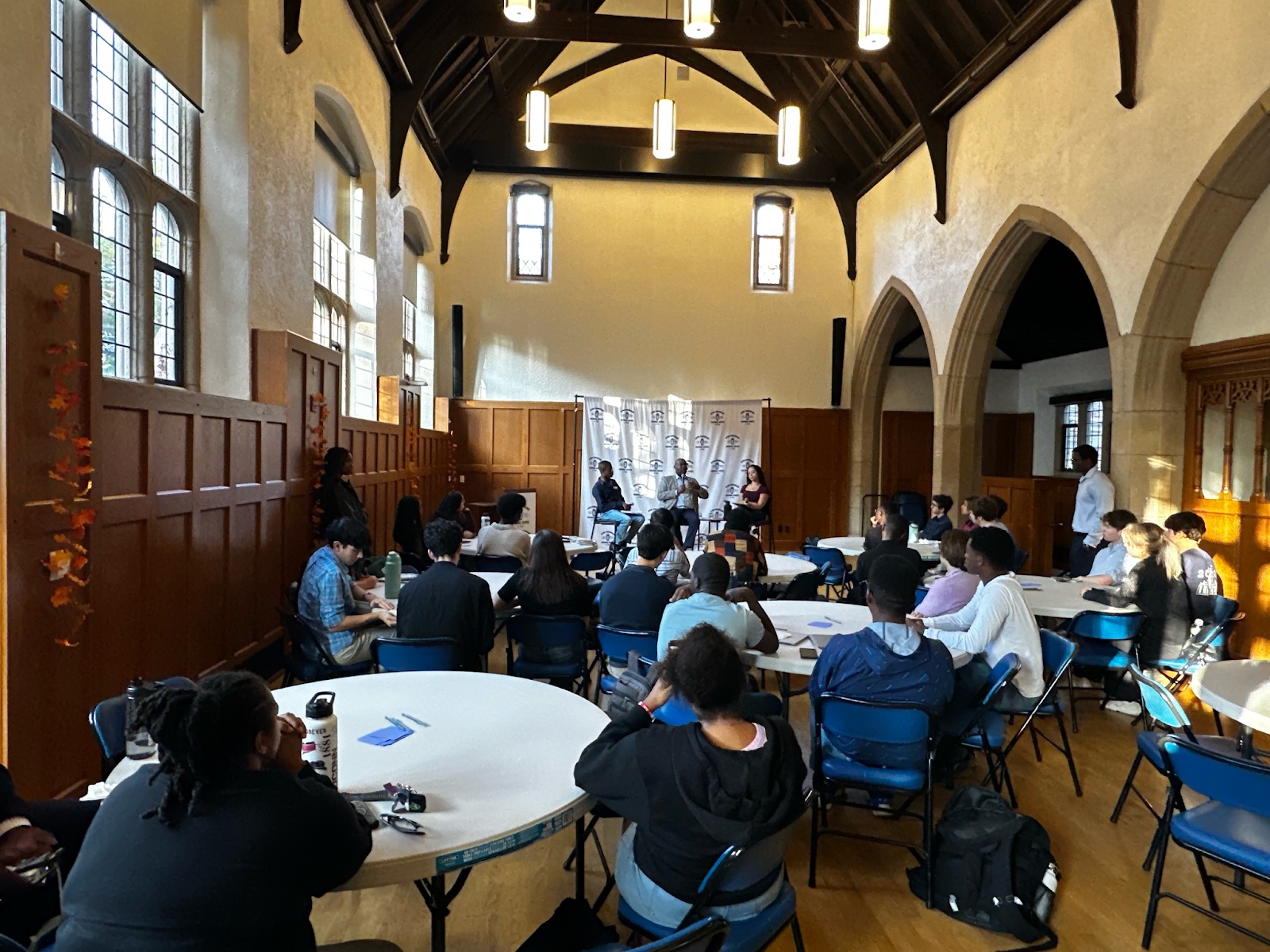
In a dynamic discussion at Yale University, DNC Chair Jaime Harrison captivated students as he addressed the pivotal role of youth voters in the upcoming presidential election. Speaking at the Afro-American Cultural Center, Harrison, a Yale alum, highlighted the significance of the race between Vice President Kamala Harris and former President Donald Trump, emphasizing that the election could be decided by just a handful of battleground states.
Responding to criticisms labeling Harris as a "DEI candidate," Harrison passionately defended her extensive political experience, declaring it disrespectful and rooted in bigotry. Harrison, who urged young voters to harness their political power, reminisced about his own formative college years and the importance of activism.
His visit, underscoring the crucial connection between past and future leaders, left students inspired to engage in shaping their political landscape and made a strong case that their votes truly matter.

A powerful coalition of Black professional athletes is throwing their weight behind Vice President Kamala Harris in her bid for the presidency, a move that could make history in November. With endorsements from iconic figures like NFL Hall of Famers and NBA champions, the athletes are rallying support around Harris, who, if elected, would be the first woman and first HBCU graduate to hold the office.
They believe her commitment to justice and equality aligns with their values. Harris is also gaining traction among Black male voters, countering negative perceptions about her Caribbean roots.
This endorsement is part of a broader initiative aimed at increasing Black voter registration, coinciding with National Black Voter Day. As the race heats up, both candidates are investing heavily in HBCUs, knowing their significance in pivotal swing states.
Harris is gearing up for a potential debate with Trump, with polls showing a close race.
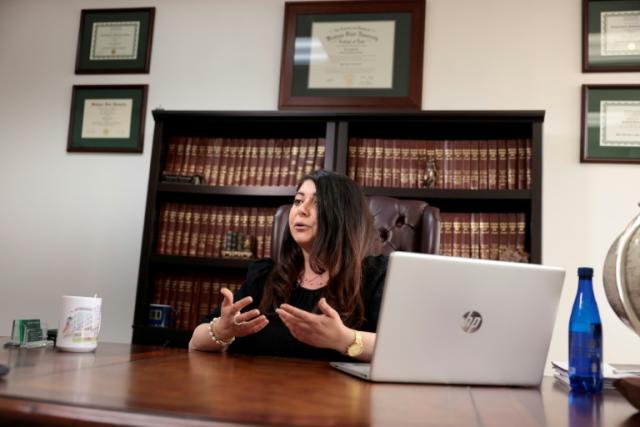
As the November 5 US presidential election approaches, swing state voters are expressing their crucial opinions on the candidates—Democrat Kamala Harris and Republican Donald Trump. In Arizona, rancher John Ladd backs Trump, hoping he'll "finish" the border wall amidst growing migration concerns.
Meanwhile, Milwaukee's Martin Kutzler supports Trump for his decisive stance on rising crime. On the flip side, Tricia Harris from Georgia champions Harris's potential to become the first female president and voices her fears about a return to past hostilities under Trump.
Michael Cooperman from Philadelphia admires Harris's intelligence but hesitates over her foreign policy views. In contrast, Soujoud Hamade of Michigan is disillusioned with Harris over her stance on Israel, opting to support third-party candidate Jill Stein instead.
With each voter carrying their unique perspectives, the outcome in these battleground states could shape the future of the nation.
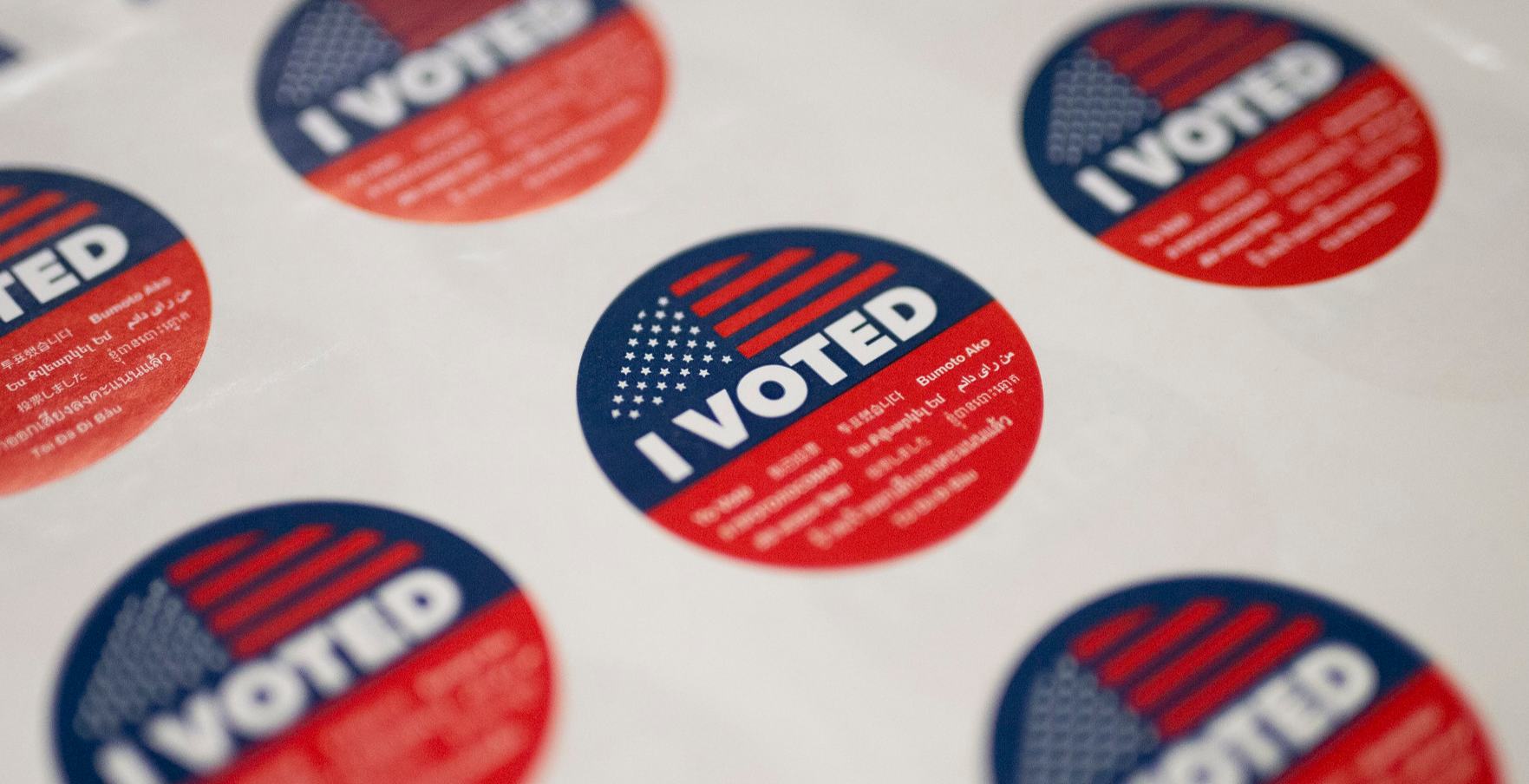
Excitement buzzes in Los Angeles as the Unique Women’s Coalition, Equality California, and FLUX host their second annual LGBTQ+ voter education town hall tonight at the Connie Norman Transgender Empowerment Center. Set to enlighten the community, this engaging event focuses on important ballot measures for the upcoming November election.
Queen Victoria Ortega of FLUX emphasizes the momentous participation of the trans and nonbinary communities in shaping their electoral future. Attendees can expect a lively Q&A session, networking opportunities, and the chance to connect with LGBTQ+ officials and advocates.
With essential discussions on housing and discrimination issues that still affect LGBTQ+ individuals, this town hall underscores the importance of informed voting in a supposedly progressive environment. Additionally, the center will serve as a safe voting location for those who need it.
